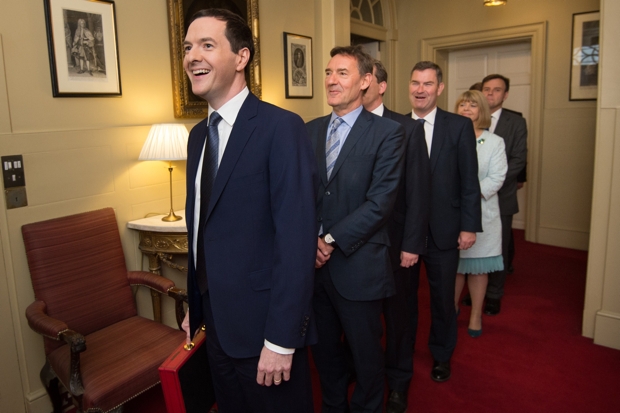What makes this Budget so politically astute is how it all fits together. The four-year freeze on working age benefits and the cuts to tax credits are made palatable by the introduction of a national living wage. Meanwhile businesses’ potential objections to this wage hike will be muted by the cut in corporation tax to 18p and the hypothecation of vehicle excise duty to road improvements.
It is hard to define this Budget politically. There were plenty of things in there to please the Tory right, the commitment to spend 2% of GDP on defence in particular. But it was also one that made several raids on Labour territory in areas such as non-dom taxation and skills and a big land grab on the national living wage.
Now, this wage is not as high as the ‘living wage’ as defined by Citizens UK but it will still lead to a substantial pay increase for those currently on the minimum wage. It also marks a big turnaround in Tory thinking: remember the party opposed the introduction of the minimum wage in 1999. It is no coincidence that George Osborne’s former chief of staff Matt Hancock, now one of Osborne’s Cabinet allies, has been arguing for several years now that the Tories should protect and strengthen the minimum wage.
Those close to Osborne say that the aim is for him to combine the best of Heseltine and Lawson. If the pension reform Budget in 2014 was very Lawsonian, this one was more Tarzan. So, Osborne’s team is particularly pleased with Heseltine’s endorsement of the national living wage policy. Heseltine has said, ‘This will be good for the national economy as it will focus managers’ minds on raising productivity, good for employees as they’ll be better off and good for the national accounts as it will reduce expenditure.’
Osborne’s Budget was a confident declaration of intent from a politician who is now focused on the big things; he’s not saving money through fiddly changes but through large measures such as cuts to tax credits, a freeze to working age benefits and limiting public sector pay rises to 1% over the next four years. When he sat down today, it was easier than ever before to imagine him moving next door to Number 10.







Comments